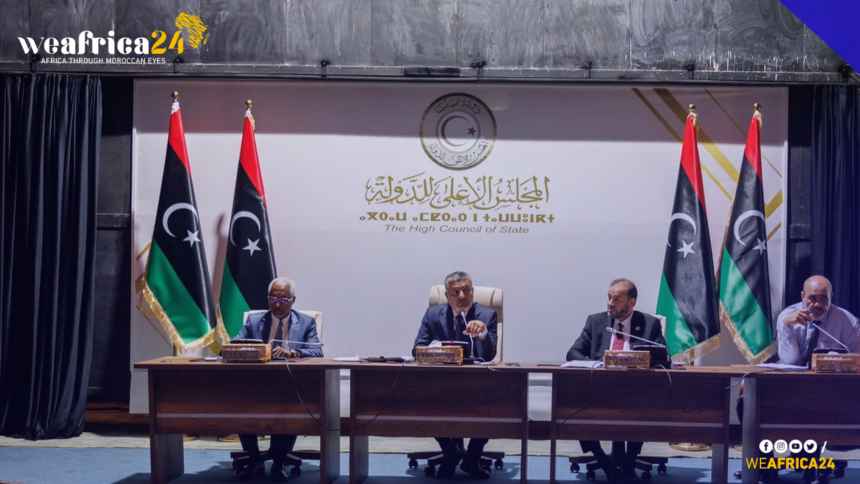The political landscape in Libya has become increasingly uncertain as both the Libyan High Council of State and the House of Representatives have taken differing stances on the recently proposed parliamentary and presidential electoral laws. This has thrown the electoral process into a state of confusion and underlying disputes, prompting observers to look to the United Nations mission and the international community to help resolve the ongoing political crisis.
President of the High Council of State, Mohamed Tekalla, has expressed his steadfast commitment to the version of the electoral laws put forth by the 6+6 joint committee, a collaboration between the High Council of State and the House of Representatives. These laws were issued on June 3rd, and Tekalla has openly supported their adoption.
In contrast, Aguila Saleh, President of the House of Representatives, has chosen to release modified versions of the electoral laws prepared by the same 6+6 committee, publishing them in the official gazette and submitting a copy to the High National Elections Commission.
Tekalla, upon completing the committee’s task, dissolved the High Council of State’s team involved in the 6+6 committee’s discussions. He called on “all parties engaged in the political process and those concerned with resolving the crisis to resume progress in this process.” This includes addressing contentious issues and proposing ways to establish a legal framework that allows for comprehensive national elections accepted by all.
It’s important to note that, following the committee’s release of the electoral laws in early June, Saleh expressed reservations about the content of the laws and refused to attend the signing ceremony, which was scheduled to take place in Morocco alongside the former President of the High Council of State, Khaled Al-Mishri.
Moreover, the High National Elections Commission has raised a series of observations and requested amendments to make the laws executable. This stance has been supported by the United Nations mission, which emphasized that consultations on any proposed amendments should not be limited to the House of Representatives and the High Council of State but involve broader political participation from all Libyan leaders and national stakeholders.







